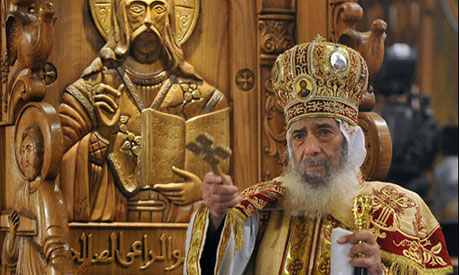Alaa Al-Aswany
Al Masry Al Youm
Writer Alaa Al-Aswany begins his article with a story concerning the subway, also known as the metro. Al-Aswany explains that in each metro, there is a cart reserved solely for women, however, this rule is often broken. One time, a woman decided to take action against some men who rode in the women’s cart by preventing the metro doors from closing. The men tried to stop her, even tried to hit her, but other women interceded. The supervisor was called and he tried to convince the woman to give up and just accept the situation, but she refused. Finally, the men had to leave the cart and the metro moved. Afterwards, the older women began to blame the young women for their behaviour, saying that they achieved nothing but tardiness.
When the supervisor found that most women were against what the young women had done, he allowed men to ride in the women’s car at the next station.
“This happened days ago and has many important connotations. There are those indolent men who do not respect the law except if there is fear of punishment. In addition to their barbaric behaviour and selfishness, they have a sense of deep resentment of women. Therefore, they see no problem in assaulting them verbally or physically if they ever ask for their rights. There is also the failed governmental administration which we inherited from Mubarak’s era, which is represented in the metro’s negligent supervisor, with his outdated ideas that always side with men against women even if [the women] are right,” Al-Aswany writes.
He also explains that there is significant contradiction between the attitude of the younger generation and that of the older one. “The young women decided to claim their rights by their own hands and bravely battled until they won, but the older women are involved in their own lives and do not have any excess energy for these battles and so they did not support the young women, which led to the return of the status quo,” Al-Aswany writes.
He adds that generalisation is not right, since there are many older people who are as zealous as the younger generation. However, he notes that the two generations come from different cultures and ideology. The older generation lived during Mubarak’s oppression and never considered revolting against it, but rather, have become acclimated to it. “They had three choices: being crushed, [facing] corruption or escaping. It was either submit to that kind of suffering, transform into corrupt people or immigrate to the Gulf countries, where they work under the trusteeship of a sponsor whose arrogance they have to bear until they make enough money to return to Egypt.”
The older generation advised their young to stay away from politics and they rarely cared about public affairs. They were the perfect model for the self-involved citizen whose concerns are restricted to his home and family. Al-Aswany also notes that the older generation is not used to the idea of collective effort and the only fight they are concerned with is that of livelihood. He adds that people expected that the younger generation would be similar to their parents if not worse. “They grew up in an ugly and random reality without a national project, role model, respectable media or good education.”
However, with the onset of the 25 January Revolution, the focus was on the younger generation, and they differed greatly from their parents. “They refused to live with corruption and they also refused to immigrate, and instead decided to change their country on their own. They held different cultures and ideologies from their parents. Their circle of interests was much wider as well.”
During the 18 days, the older generation was willing to make many concessions, but the younger one refused. They demanded a presidential council instead of the Supreme Council of Armed Forces, but the older generation accepted it willingly, “and Egypt paid the price”. Al-Aswany commends the youth for forming Tamarod and successfully removing Morsi, instead of just whining about the Brotherhood. However, they found themselves jailed when the former-regime supporters, “feloul”, headed the political scene and freedoms were crushed again.
The older generation once again chose to ignore the violations and to support Al-Sisi no matter what. However, the younger generation refused to give in to the pressure and they demanded fair elections and for Al-Sisi to declare his wealth just like the rest of the candidates.
“There are indications that cannot be ignored; the security apparatus have returned to their old habits of oppressing the innocents and fabricating charges,” Al-Aswany writes. He concludes the article by stating that the younger generation is angry and doubtful with regards to the intentions of the current authority and they are demanding a real guarantee for a democratic system. “So, let’s listen to the youth this time. They were always right. Democracy is the solution.”





